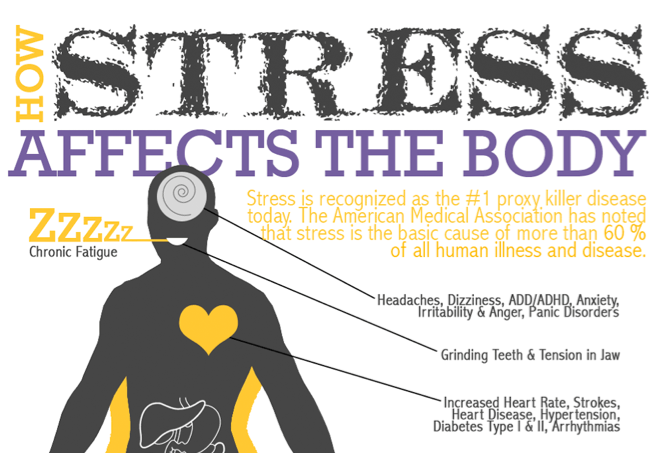Have you ever wondered about the effects stress can have on the body and everyday life? Stress can dramatically impact heart health and cognitive function, including making healthy life choices, says Catherine Calarco, chief marketing officer of HeartMath.
“Science shows that connecting the heart and mind increases performance, and the American Medical Association has noted that stress is the basic cause of more than 60 percent of all human illness and disease,” says Calarco. “Wow! Just think about that number for a minute.”
Managing stress leads to feeling and living better, says Calarco. “And when you feel better, you’re more inclined to walk, exercise or simply increase your level of activity, which leads to even better health. Sleep quality improves and life just gets better. Now what’s wrong with that?” asks Calarco. Here are her suggestions for managing stress and improving your heart health.
1. Practice kindness and patience
These are heart feelings that nourish you and others, but they need to be engaged to provide the benefits. A simple adaption of HeartMath’s Quick Coherence technique can help you activate positive feelings of kindness and patience when you are irritable. It takes less than a minute to do.
- Heart Focus — Focus your attention in the area of your heart.
- Heart-Focused Breathing — As you focus in the area of your heart, imagine your breath is flowing in and out through that area. Breathe slowly and gently in through your heart and slowly and easily out through your heart.
- Heart Feeling — Continue to breathe through the area of your heart. Activate feelings of genuine kindness and patience as you breathe. Keep doing this until you feel impatience, irritation or stress release.
2. Pets are a great way to manage stress
Animals help by allowing us to focus on the positive things in our lives. Playing with pets and just having them in the house can reduce fears and anxieties in most situations. Moreover, the simple act of touching or petting an animal can actually change the way you respond to a stressful situation. It’s important to note that this may not be a solution for everyone – as pets do come with additional work and responsibility. For most people, the benefits can outweigh the drawbacks.
3. Adjust your eating habits
Long-term stress can increase your appetite and cause you to binge on unhealthy foods. This kind of emotional eating is often the body’s way of coping with the stressors. Mother Nature makes excellent stress fighters. Foods naturally rich in vitamins and minerals can help fight increased levels of cortisol – a stress hormone. Next time you get the urge to binge on greasy fast food or ice cream, try a handful of vitamin C-packed berries instead.
4. Train and guide yourself to better manage stress
For those that are serious about reducing stress, there are high-tech tools to help. For example, the Inner Balance trainer provides a highly specialized 3-step technique, and real-time feedback helps you synchronize your breath and heart rhythms as you retrain your mind body response to stress. This techno stress reducer has become widely popular with healthcare professionals that want an effective solution they can suggest to patients
5. Be social and exercise
While there are times it feels like relationships with friends and family may be the cause of stress, a strong supportive network of family and friends can also significantly reduce stress and act as buffer. Enjoying the company of others can relieve feelings of tension and improve overall psychological well-being. Taking a walk or exercising with others has an amazing positive effect – and adds many more steps! Being with others that we care for can increase our positive emotional experiences. Some positive emotions have been shown to increase DHEA, known as the anti-aging hormone, and trigger oxytocin, known as the love hormone. These good-for-you hormones can help combat stress and may even boost the immune system.
![]() As the chief marketing officer for HeartMath, Catherine Calarco is dedicated to dramatically reducing stress to improve health and wellbeing.
As the chief marketing officer for HeartMath, Catherine Calarco is dedicated to dramatically reducing stress to improve health and wellbeing.
HeartMath is the leader in providing research-based programs, techniques and technologies dedicated to dramatically reduce stress that deliver results in improved health and well-being. HeartMath system is being widely used within hospitals and healthcare systems and academic settings. Plus, these programs have been adopted by the US military for resilience-building pre-deployment and Veteran Administration clinics that are working with emotionally wounded soldiers.
This information is for educational purposes only and is not intended as a substitute for medical diagnosis or treatment. You should not use this information to diagnose or treat a health problem or condition. Always check with your doctor before changing your diet, altering your sleep habits, taking supplements, or starting a new fitness routine.

If you have questions about a Fitbit tracker, product availability, or the status of your order, contact our Support Team or search the Fitbit Community for answers.
Please note: Comments are moderated and may not appear immediately after submission.